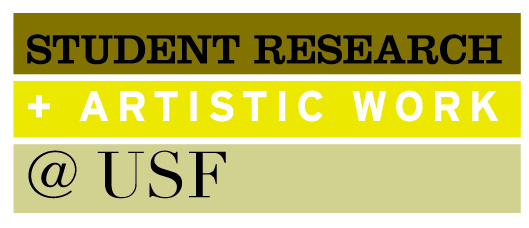Major
Psychology
Research Abstract
This research investigates factors that contribute to emerging adult black gay and bisexual men’s sources of social support. Participants were 20 Black, gay/bisexual men between 18-25 years old (Mage = 22.8, SD = 1.7). Researchers conducted semi-structured interviews and utilized grounded theory to determine intersectionality between participants’ religious upbringing as well as their racial, spiritual, sexual, and HIV identities. Participants who self-identified as bisexual continued to seek social support within churches despite having endured repeated exposure to negative religious rhetoric pertaining to same-sex behavior in religious settings. Participants who self-identified as queer did not seek social support within churches. While a majority of participants who self-identified as gay did not seek social support from churches, gay participants who did seek social support from churches were also HIV positive. A majority of participants indicated having to seek social support from communities that did not encompass all of their identities (racial, sexual, religious/spiritual, HIV) and expressed feelings of not belonging or being fully accepted by those communities as a result. Data from this research indicates a need for further research examining Black men’s sexual and religious identity self-labeling tendencies as well as HIV status as predictors of likelihood to seek social support in religious communities, specifically, black churches. A greater understanding of the factors that contribute to emerging adult, Black, gay/bisexual men’s selection of communities for social support may benefit community organizers in the development of groups that could act as sources of resiliency, especially for individuals who are living with HIV.
Faculty Mentor/Advisor
Dr. Ja'Nina Walker, Ph.D.
Included in
Religious vs. Secular Communities: Sources of Social Support for Emerging Adult Black Gay and Bisexual Men
This research investigates factors that contribute to emerging adult black gay and bisexual men’s sources of social support. Participants were 20 Black, gay/bisexual men between 18-25 years old (Mage = 22.8, SD = 1.7). Researchers conducted semi-structured interviews and utilized grounded theory to determine intersectionality between participants’ religious upbringing as well as their racial, spiritual, sexual, and HIV identities. Participants who self-identified as bisexual continued to seek social support within churches despite having endured repeated exposure to negative religious rhetoric pertaining to same-sex behavior in religious settings. Participants who self-identified as queer did not seek social support within churches. While a majority of participants who self-identified as gay did not seek social support from churches, gay participants who did seek social support from churches were also HIV positive. A majority of participants indicated having to seek social support from communities that did not encompass all of their identities (racial, sexual, religious/spiritual, HIV) and expressed feelings of not belonging or being fully accepted by those communities as a result. Data from this research indicates a need for further research examining Black men’s sexual and religious identity self-labeling tendencies as well as HIV status as predictors of likelihood to seek social support in religious communities, specifically, black churches. A greater understanding of the factors that contribute to emerging adult, Black, gay/bisexual men’s selection of communities for social support may benefit community organizers in the development of groups that could act as sources of resiliency, especially for individuals who are living with HIV.



